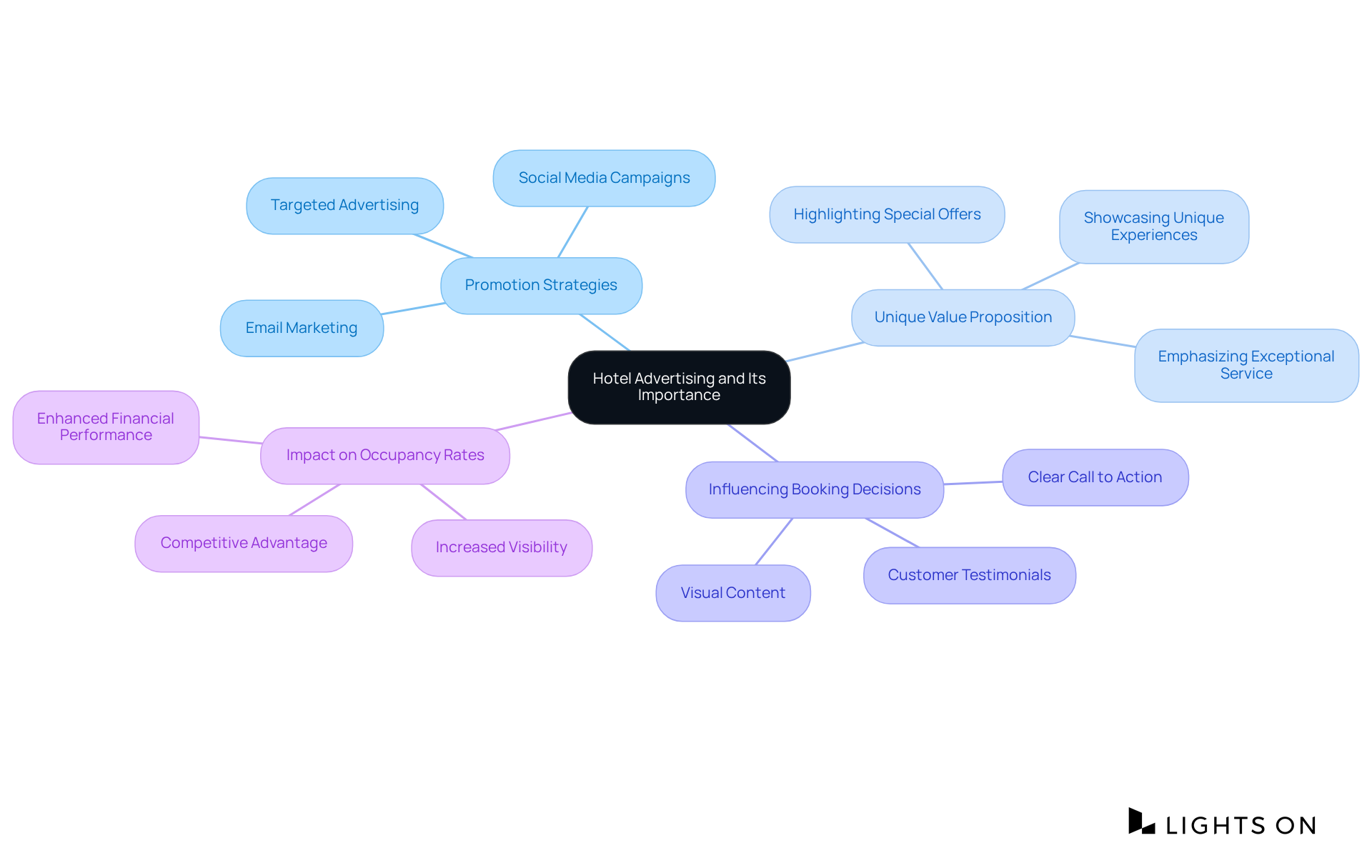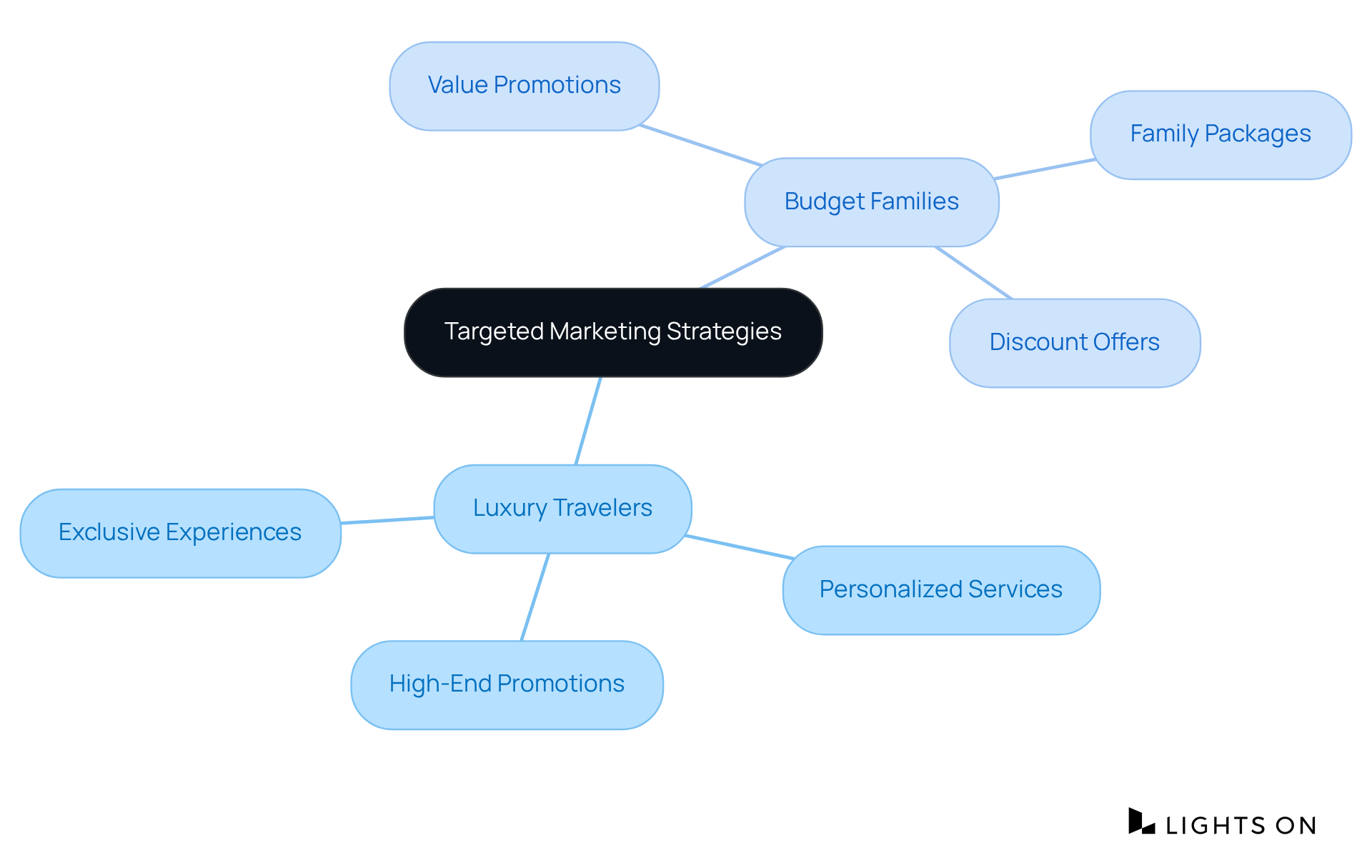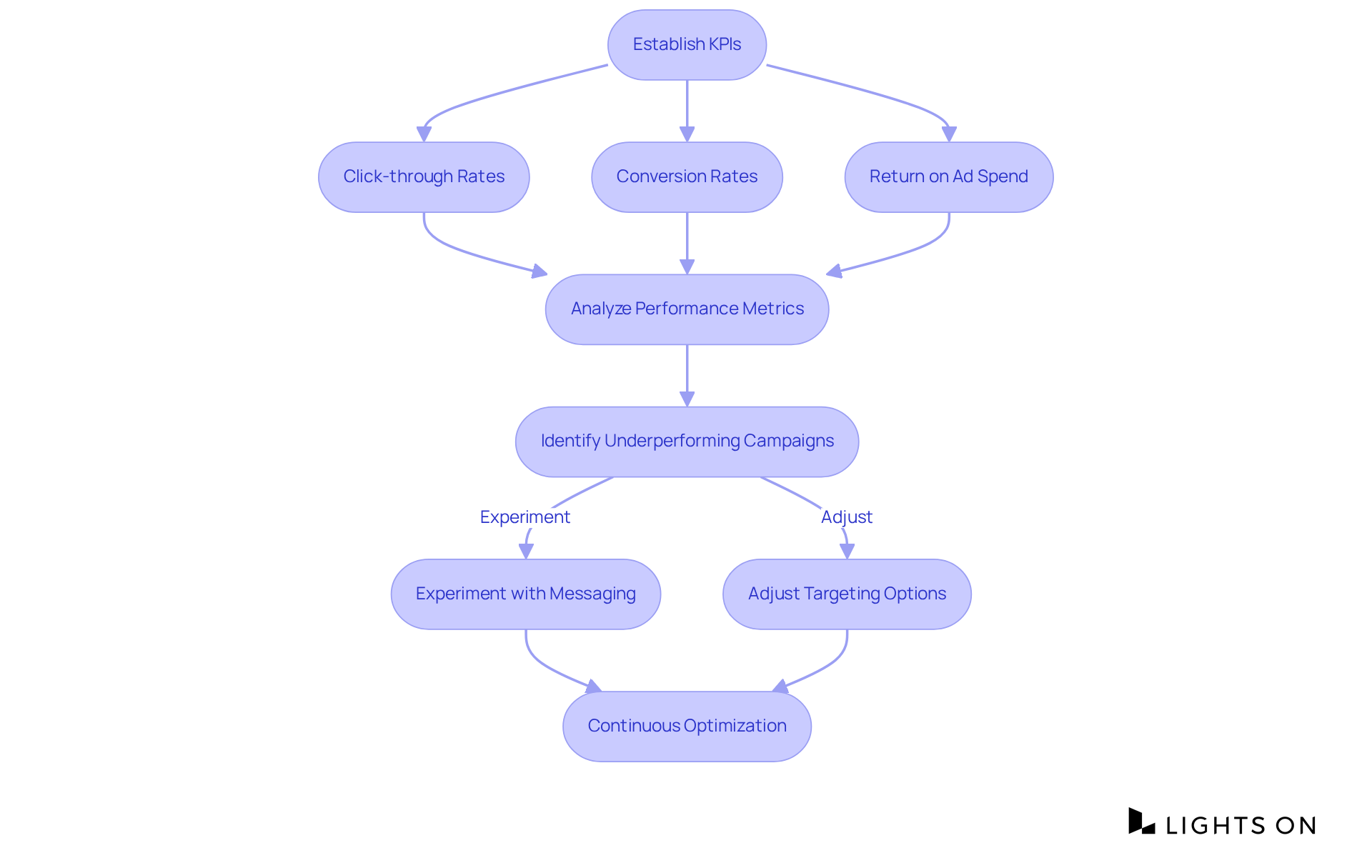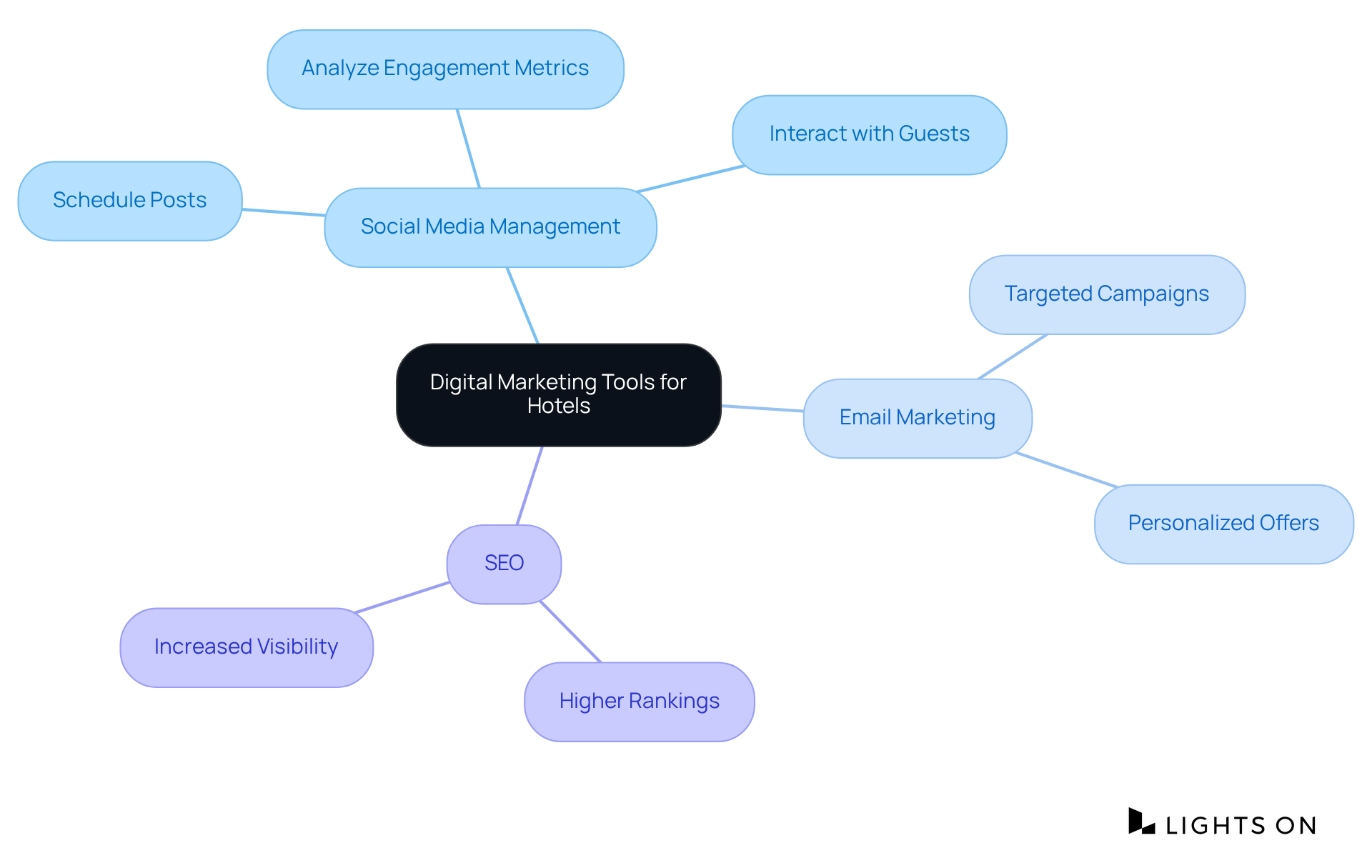The article delineates four pivotal strategies for effective hotel advertisement:
Each strategy is underpinned by relevant examples and case studies that illustrate how tailored promotional efforts, precise performance indicators, and the integration of digital tools can markedly enhance visibility, engagement, and ultimately, booking rates within a competitive hospitality market.
In an industry where travelers are inundated with options, the ability to effectively advertise a hotel can make all the difference between a fully booked establishment and one that struggles to attract guests. Understanding the nuances of hotel advertising is crucial; it not only enhances visibility but also communicates a unique value proposition that resonates with potential visitors.
However, with so many strategies available, how can hotels ensure they are employing the most effective methods to capture attention and drive bookings? This article delves into four key strategies that can transform hotel advertising from a mere necessity into a powerful tool for success.
Promotion strategies and tactics encompass a range of methods designed to highlight a lodging establishment's services and amenities through hotel advertisements to potential visitors. This aspect is vital as it enables accommodations to in a saturated market, where travelers have numerous options at their disposal. An effective hotel advertisement not only boosts visibility but also articulates the unique value proposition of an accommodation, significantly influencing booking decisions.
For instance, a thoughtfully crafted hotel advertisement can spotlight special offers, unique experiences, or exceptional service, thereby increasing an establishment's appeal to its target audience. In such a competitive landscape, acknowledging the importance of hotel advertisement can lead to improved occupancy rates and enhanced financial performance, establishing it as a critical component of any promotional strategy within the hospitality sector.

To execute focused , accommodations must first identify their ideal customer groups based on demographics, travel behavior, and preferences. By employing data analysis tools, they can gain a deeper understanding of guest profiles and tailor promotional messages accordingly.
For example, a luxury accommodation may target affluent travelers seeking exclusive experiences, while a budget establishment might focus on families looking for value. Furthermore, leveraging social media platforms and search engine marketing can significantly enhance targeting efforts.
By crafting personalized hotel advertisements that resonate with specific segments, accommodations can markedly improve engagement and conversion rates. A compelling case study of a boutique establishment that achieved a 30% increase in bookings through a hotel advertisement using targeted Facebook ads exemplifies the effectiveness of this strategic approach.

To effectively measure and optimize the performance of a hotel advertisement, establishments must establish clear key performance indicators (KPIs) such as:
As Bill Gates aptly stated, "Your most unhappy customers are your greatest source of learning," highlighting the importance of understanding performance metrics. Furthermore, leveraging analytics tools like Google Analytics offers valuable insights into hotel advertisement performance across various channels. Consistently analyzing these metrics allows accommodations to pinpoint successful strategies and identify areas needing adjustment.
For instance, if a particular ad campaign is underperforming, accommodations can experiment with different messaging or targeting options to enhance engagement. Continuous optimization, driven by data insights, can significantly improve the effectiveness of hotel advertisement and boost revenue.
A significant case involved a hotel advertisement that implemented A/B testing on its ad creatives, resulting in a remarkable 25% increase in bookings, underscoring the impact of performance measurement in the hospitality sector. In addition, Lights On has attained an impressive of 47%, showcasing the effectiveness of their extensive strategies that blend digital expertise with revenue management to tackle the challenges of heightened visibility in a competitive market.

Harnessing digital promotional tools can significantly elevate a hotel advertisement's reach for a lodging establishment. Tools such as , email marketing software, and search engine optimization (SEO) techniques enhance promotional efforts and foster guest engagement.
For example, employing a social media management tool allows accommodations to:
Furthermore, targeted email campaigns can deliver personalized offers to past guests, effectively encouraging repeat bookings. By implementing SEO strategies, a lodging establishment ensures its website ranks higher in search results, thereby increasing visibility to potential guests.
A hotel advertisement that adopted an integrated digital marketing approach experienced a remarkable 40% surge in website traffic, coupled with a corresponding rise in bookings—demonstrating the undeniable effectiveness of these tools.

Effective hotel advertising is crucial for distinguishing oneself in a competitive marketplace, where travelers face an overwhelming array of choices. By adopting strategic promotional methods, hotels can significantly enhance their visibility and effectively communicate their unique offerings to potential guests, ultimately influencing booking decisions. The emphasis on tailored advertisements enables accommodations to forge meaningful connections with their target audience, which leads to improved occupancy rates and financial success.
Throughout this discussion, essential strategies have been highlighted, including:
By gaining insights into guest demographics and preferences, hotels can create personalized advertisements that resonate with specific segments. Furthermore, utilizing performance metrics and analytics fine-tunes advertising efforts, while digital tools expand reach and engagement, as demonstrated by case studies that reveal substantial increases in bookings and website traffic.
In a rapidly evolving hospitality landscape, the significance of effective hotel advertising cannot be overstated. By embracing these strategies, accommodations can not only enhance their market presence but also cultivate long-term relationships with guests. As the industry continues to innovate, staying ahead of advertising trends and employing data-driven techniques will be vital for success. Hotels are urged to take proactive measures now, ensuring their promotional efforts are strategically aligned, setting the stage for sustained growth and profitability.
What is hotel advertising?
Hotel advertising refers to promotion strategies and tactics designed to highlight a lodging establishment's services and amenities to potential visitors.
Why is hotel advertising important?
Hotel advertising is important because it helps accommodations differentiate themselves in a saturated market, boosts visibility, and articulates the unique value proposition, which significantly influences travelers' booking decisions.
How can an effective hotel advertisement impact a lodging establishment?
An effective hotel advertisement can spotlight special offers, unique experiences, or exceptional service, increasing the establishment's appeal to its target audience and potentially leading to improved occupancy rates and enhanced financial performance.
What role does hotel advertising play in the hospitality sector?
Hotel advertising plays a critical role in the hospitality sector as it is a fundamental component of any promotional strategy aimed at attracting guests and improving overall business success.
Transform your group booking strategies with Lights On and watch your occupancy soar.